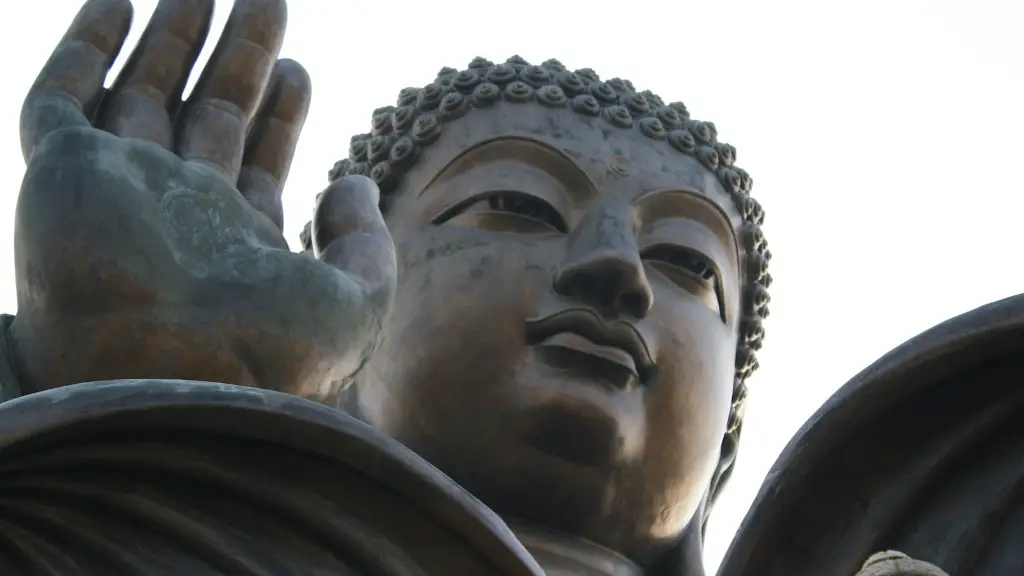Buddhism has been around for over 2,500 years and has a rich history and tradition. The founder of Buddhism, Siddhartha Gautama, was born into a wealthy family in what is now Nepal. He saw the suffering of his people and sought to find a way to end it. He left his home and family and spent six years wandering and meditating in search of enlightenment. He finally attained enlightenment under a tree and became the Buddha, which means “awakened one.” The Buddha taught that the way to end suffering is to let go of attachments and desires. This may seem difficult at first, but the Buddha’s teachings can help us to see the world in a different, more compassionate way. If you are looking for a way to make sense of the suffering in the world and find inner peace, then Buddhism may be for you.
Buddhism is a religion that is based on the teachings of Siddhartha Gautama, who is also known as the Buddha. Buddhism is a religion that is based on the Four Noble Truths and the Eightfold Path. Buddhism is a religion that teaches that life is full of suffering and that the only way to end suffering is to reach Nirvana. Nirvana is a state of complete peace and bliss.
Can I decide to be a Buddhist?
Anyone can be a Buddhist. You don’t have to be born into it or have Buddhist parents. You can be of any race, nationality, or social class. If you want to identify as a Buddhist, you typically take part in a ceremony called taking refuge in the Triple Gem.
Anyone can be a Buddhist. An individual does not particularly have to be born or raised in Buddhist culture nor do anyone’s parents have to be Buddhist. The said individual can be of any race, region, gender, socio-economic background, etc.
What can’t you do if you’re a Buddhist
The five moral precepts are the foundation of Buddhist ethics and are observed by all Buddhists. They are:
1. Killing living things
2. Taking what is not given
3. Sexual misconduct
4. Lying
5. Using drugs or alcohol.
These precepts provide guidelines for living a moral and ethical life. They are not meant to be taken literally, but rather as general principles to live by.
In Buddhism, the goal is to become enlightened and reach nirvana. Nirvana is believed to be attainable only with the elimination of all greed, hatred, and ignorance within a person. Nirvana signifies the end of the cycle of death and rebirth.
Can I be a Buddhist and drink alcohol?
Buddhism teaches that drinking or using other kinds of drugs can cause carelessness and should be avoided. Buddhism also teaches that alcohol and other drugs can lead to addiction, and that addiction can cause suffering. Strong Buddhist beliefs would be expected to have a significant impact on alcohol use.
Buddhism teaches that true happiness comes from detachment from the cycle of craving that leads to suffering (dukkha). The path to happiness, then, is through knowledge and practice that lead to mental equanimity. By achieving this state of mind, we are able to find true peace and happiness.
What is forbidden for Buddhist?
The precepts are a set of guidelines that Buddhists commit to in order to develop their mind and character and progress on the path to enlightenment. They include abstaining from killing living beings, stealing, sexual misconduct, lying and intoxication. By following these precepts, Buddhists hope to become more compassionate and wise people.
Buddhism does not involve belief in any kind of deity or god. Supernatural figures may exist who can help or hinder people on the path towards enlightenment, but they are not worshipped or venerated in any way. The focus in Buddhism is on developing one’s own spiritual understanding and capabilities, rather than on relying on external forces.
Does Buddhism recognize a god
Buddhism is a religion that does not include the belief in a creator deity, or any eternal divine personal being. Buddhists believe that the Universe is eternal and that there is no need for a creator god. The Buddha was a human being who achieved enlightenment through his own efforts and who then taught others how to do the same.
These five sins are particularly serious offenses within the Buddhist faith, and can lead to great suffering in this life and in future lives. If one has committed any of these offenses, it is important to seek forgiveness and to try to make amends as soon as possible.
Do Buddhists drink coffee?
Most Buddhists believe that coffee in moderation is perfectly fine, as long as it does not interfere with the fifth precept, a guideline of morals for practicing Buddhists. The jury is still out on coffee consumption, but most Buddhists believe that moderate coffee consumption is not harmful and can actually be beneficial.
There are some high level Buddhists who have drawn analogies between Jesus and Buddhism. For example, in 2001, the Dalai Lama stated that “Jesus Christ also lived previous lives”. He added that “So, you see, he reached a high state, either as a Bodhisattva, or an enlightened person, through Buddhist practice or something like that”. Thich
What is the ultimate goal for most Buddhist
Nirvana, or the liberation from cycles of rebirth, is the highest aim of the Theravada tradition. In the Theravada tradition, nirvana is the goal to which all practitioners aspire. The Mahayana tradition, on the other hand, views the highest goal as Buddhahood. In Buddhahood, there is no abiding in nirvana. Rather, Buddha helps liberate beings from saṃsāra by teaching the Buddhist path.
When emotions like fear or anxiety become too strong, Buddhist teachers say we should recall examples of compassion, kindness, and empathy. The pattern of fearful and despairing thoughts can be stopped by bringing ourselves back to the feeling of caring for others. Even as we maintain distance, compassion is important.
Do Buddhists believe in mental health?
From my understanding, inner peace is key to happiness according to Buddhist doctrine. It seems that the main form of mental training to reach this inner peace is through meditation. I find this interesting because I have always heard that meditation has many positive benefits for mental health, such as reducing stress, anxiety and depression. I would like to learn more about how to meditate so that I can hopefully achieve more inner peace and happiness in my life.
Shaving your head is seen as a symbol of renunciation of your worldly ego and attachments in Buddhism. Pabbajja is when a person leaves their home to live as a Buddhist renunciate among ordained monks. It is a paramount step to becoming a monk.
Conclusion
Buddhism is not for everyone. It is a religion that requires a great deal of commitment and dedication. If you are not ready to make a commitment to Buddhist practice, then it is not for you.
There is no one-size-fits-all answer to this question, as everyone’s experiences and beliefs are unique. However, if you are looking for a religion that emphasizes compassion, mindfulness, and personal growth, then Buddhism may be a good fit for you. Ultimately, the best way to know if Buddhism is right for you is to explore its teachings and practices for yourself.



